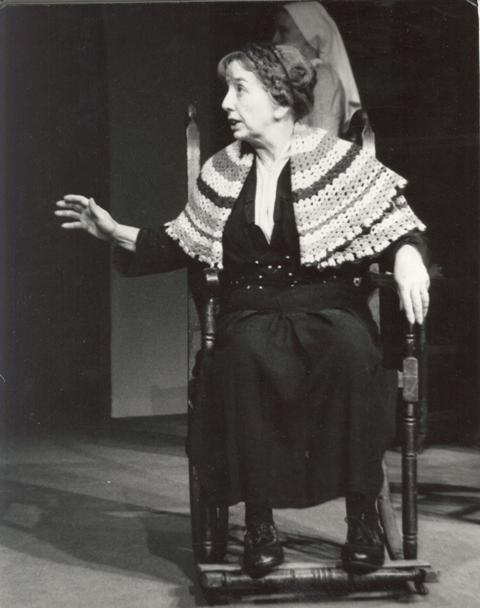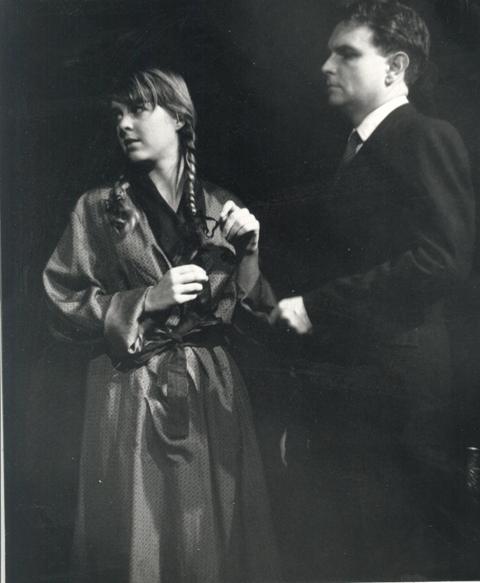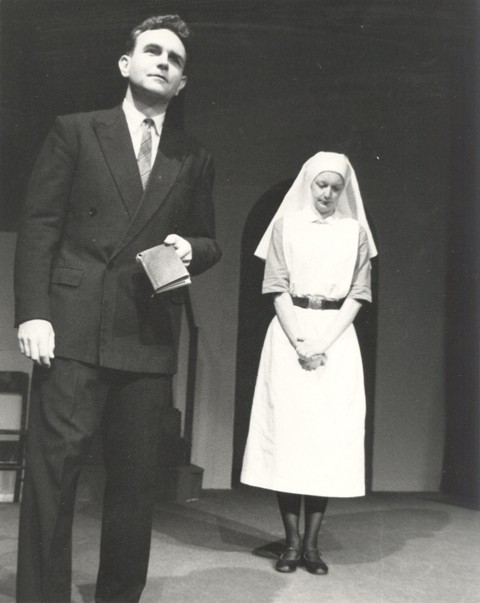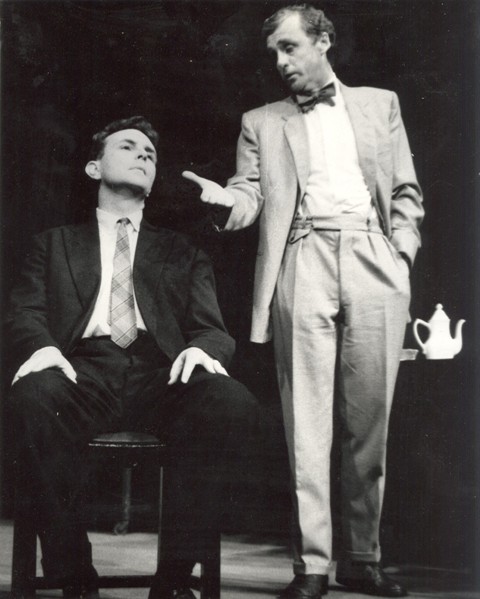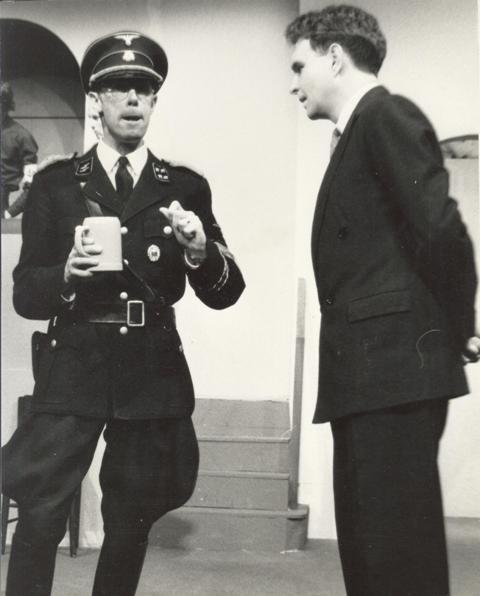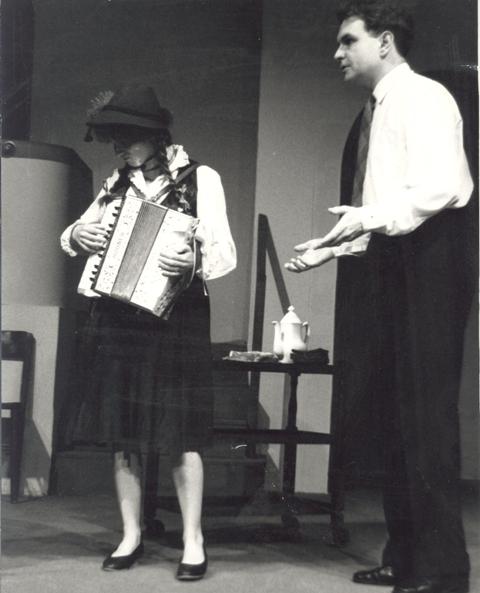The Bench Production
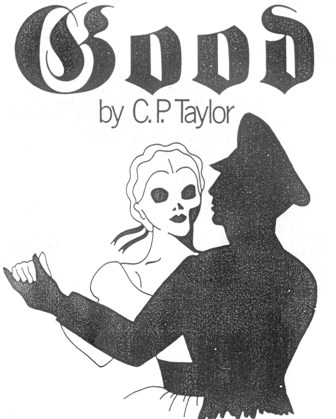
This play was staged at Havant Arts Centre, East Street Havant - Bench Theatre's home since 1977.
Characters
| Halder | David Penrose |
| Sister | Jane Hart |
| Mother | Janet Simpson |
| Clerk | Ben Payne |
| Doctor | Cliff Harries |
| Maurice | Pete Woodward |
| Helen | Ingrid Corrigan |
| Bouller | Peter Holding |
| Anne | Alison Habens |
| Freddie | Chris Shaw |
| Hitler | Simon Baxter |
| Bok | Ben Payne |
| Elisabeth | Jane Hart |
| Dispatch Rider | Cliff Harries |
| Officer | Ben Payne |
| Eichmann | Peter Holding |
| Hess | Ben Payne |
The Extremely Light Orchestra
| Piano/Accordion | Lyn Collins |
| Violin | Simon Baxter |
| Cello | Ellie Ling |
| Guitar | David Ireland |
| Vocalist | Gax |
Crew
| Director | Frank Lyons |
| Stage Manager | Jo German |
| Assistant Stage Manager | Jude Salmon |
| Lighting | Richard Stacey |
| Costumes | Robbie Cattermole Clawson Morris Jane Hart |
| Musical Director | Lyn Collins |
Director's Notes
'Good' is set in Germany between 1933 and 1942. Primarily it is a play about the causes rather than the consequences of Nazism. It explores how a "Good" man gets caught up in the intricate web of personal and social reasons why the average person might be seduced in to what we now see as abhorrent. The play this emerges as a fiction with imaginary characters set against social history. The author, C P Taylor thus rejects the view that the Nazi atrocities are explained as a result of the simple conspiracy of criminals and psychopaths. Further the lesson of Nazism and the play are not just about the revulsion of six million dead but a warning about popular movements that lead to holocausts. In remembering these lessons we should this reflect on today's support given to Apartheid in South Africa, our fears of "enemies within" and our participation in the final final solution - a nuclear holocaust.
The play commences in January 1933. It was in January of that year that Hitler took office. Other historical moments referred to in the play are included:
- May 1933 - Book burning at the University of Berlin
- January 1934 - Murder of S A Leader Roehm
- November 1938 - Shooting of Von Rath
- November 1938 - The night of the Broken Glass (the Anti-Jewish Programmes)
- June 1941 - Nazi War against the Soviet Union
- June 1941 - Rudolph Hess ordered to established extermination facilities at Auschwitz. At his Nuremberg trial Hess proudly claimed that he has improved the extermination process so the Jews thought they were being taken to the baths for delousing rather than to the gas chambers. And taken to the accompaniment of music played by an orchestra of "young and pretty girls all dressed in white blouses and navy blue skirts" as one survivor recalls.
Frank Lyons
Reviews
The NewsJanice Macfarlane
Farewell to six million fair weather friends
Some of my best friends are Jewish but... six million of them still ended up in the gas chambers. C P Taylor's 'Good' shows how a decent, intelligent man whose best friend is a Jew could not only be seduced into joining the Nazis, but justify to his conscience the terrible actions which his position as an SS Officer demands. If ever there were a dire warning to woolly liberals, this is it - for Professor John Halder's agile intellect and his capacity to see the good in everyone are his own undoing.
Havant's Bench Theatre has taken on the challenge of this thoughtful play. There were signs of hesitation and unease among some of the principal actors, but Halder who is almost constantly on stage, is a perfect vehicle for David Penrose. His total confidence and talent for irony make it all fall into place. The set ingeniously gets round the limitations of the Old Town Hall space in accommodating a sizable cast, instant switches of scene, and five onstage musicians who punctuate the action with ironic musical footnotes.
In his director's note, Frank Lyons draws a moral parallel with issues of today - namely Apartheid and 'the final solution - a nuclear holocaust. But the real irony of a play like 'Good' is that the author had the benefit of hindsight, while the Halders of today do not.
The News, 11th July 1986
Letter to the Editor
Bench Mark
I would like to say how much I agree with Janice Macfarlane's review of the Bench Theatre's play 'Good'. A most rewarding evening for the sadly sparse audience. The quality and talent of the players deserved more. What a courageous production. Full marks to David Penrose and his supporting cast.
E M Denney (Mrs) Nore Farm Avenue, Emsworth, 16th July 1986
